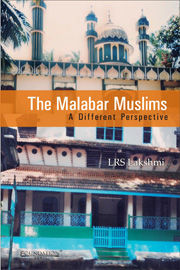Book contents
- Frontmatter
- Contents
- List of Maps
- List of Tables
- Acknowledgements
- List of Abbreviations
- Note on Transliteration
- Maps
- Introduction
- 1 The Hadhrami Roots
- 2 Family and Inheritance Laws: Continuities and Changes
- 3 Religious Spaces and Disputes
- 4 Reformist Trends
- 5 Education and Social Mobility
- 6 Mappilla Leadership and Political Mobilization
- 7 Mappillas in the Twenty-first Century: A Standing Applause
- Conclusion
- Appendix
- Glossary
- Bibliography
- Index
4 - Reformist Trends
Published online by Cambridge University Press: 05 June 2012
- Frontmatter
- Contents
- List of Maps
- List of Tables
- Acknowledgements
- List of Abbreviations
- Note on Transliteration
- Maps
- Introduction
- 1 The Hadhrami Roots
- 2 Family and Inheritance Laws: Continuities and Changes
- 3 Religious Spaces and Disputes
- 4 Reformist Trends
- 5 Education and Social Mobility
- 6 Mappilla Leadership and Political Mobilization
- 7 Mappillas in the Twenty-first Century: A Standing Applause
- Conclusion
- Appendix
- Glossary
- Bibliography
- Index
Summary
The geography of Malabar was partly responsible for the relative isolation of Malabar Muslims, the intellectual consequences of which were noticeable during the period of socio-religious movements in the nineteenth century North India. Apart from the linguistic and geographical barriers, it can be argued that the Mappillas of Malabar were unaffected by the reform movements in the north possibly because of the absence of a powerful ‘ulama class associated with a court culture like that of the Mughals; the lack of a highly educated Muslim elite like the ashraf of North India; their being sunnis of the Shafi'i school; and their links with the Arabian heartlands rather than with the rest of India. However, there were exceptions to this general trend in that there were a handful of Mappillas who went to Deoband and also, the usual barriers to penetration were surpassed by the missionary Ahmadiyya movement.
Among the early socio-religious movements in Malabar in the period between 1870s and 1920s was that of Sanaullah Makti Thangal. He was initially an excise inspector in the British government but resigned in 1882 to become a social reformer. He was a severe critic of the Christian missionary activities in Malabar and to counter them, he mobilised the Mappillas through public meetings and pamphlets defending Islam and challenging Christian religious ideas. He also advocated English education, the education of girls and reformed the Arabi-Malayalam script.
- Type
- Chapter
- Information
- The Malabar MuslimsA Different Perspective, pp. 87 - 106Publisher: Foundation BooksPrint publication year: 2012



